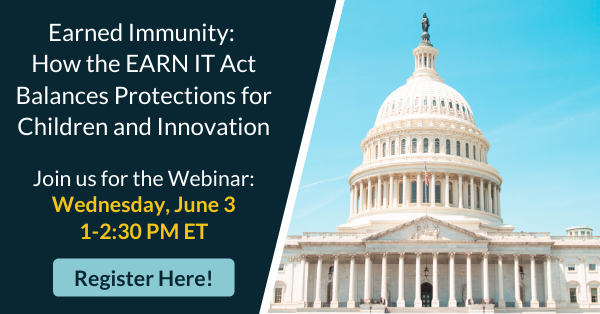Over the past several weeks as the COVID-19 crisis has spread across the nation, students have moved from schools to online learning platforms, thousands of employees have moved from office buildings to home offices, and many organizations that serve and support child victims of sexual exploitation must now rely on the internet to reach out to and counsel exploited children. While these online platforms have provided essential access for those seeking to support and protect children, these same platforms provide predators and exploiters unprecedented access to groom and exploit children, and many refuse to take commonsense steps to prevent exploitation or even to quickly identify and end it when it occurs.
As concerns about child safety online have increased, caregivers must now add the role of “online protector” to the many other roles they are currently playing during this pandemic. What this highlights is the need to establish online protections for children at the source, rather than shifting this overwhelming burden to caregivers, teachers, service providers and law enforcement. Those who develop online platforms should be employing that same innovation to help stop predators and exploiters who misuse these platforms and to quickly identify and interrupt exploitation when it happens.
On June 3, join sponsors of the EARN IT Act, and NGOs combating human trafficking and child exploitation, to hear how the EARN IT Act provides a path to accomplishing that goal. EARN IT would bring together leading experts in the tech industry with leaders in the fight against sexual exploitation of children in a new national commission. This bipartisan commission is tasked with developing innovative and groundbreaking best practices for preventing and responding to child sexual exploitation online while fostering an open internet. By extending Section 230 immunity to providers of online services that implement the Commission’s best practices, a new framework would be established—in place of the blanket immunity currently enjoyed by online service providers regardless of whether they prevent child exploitation or profit from it, immunity would be provided to those who have earned it.







